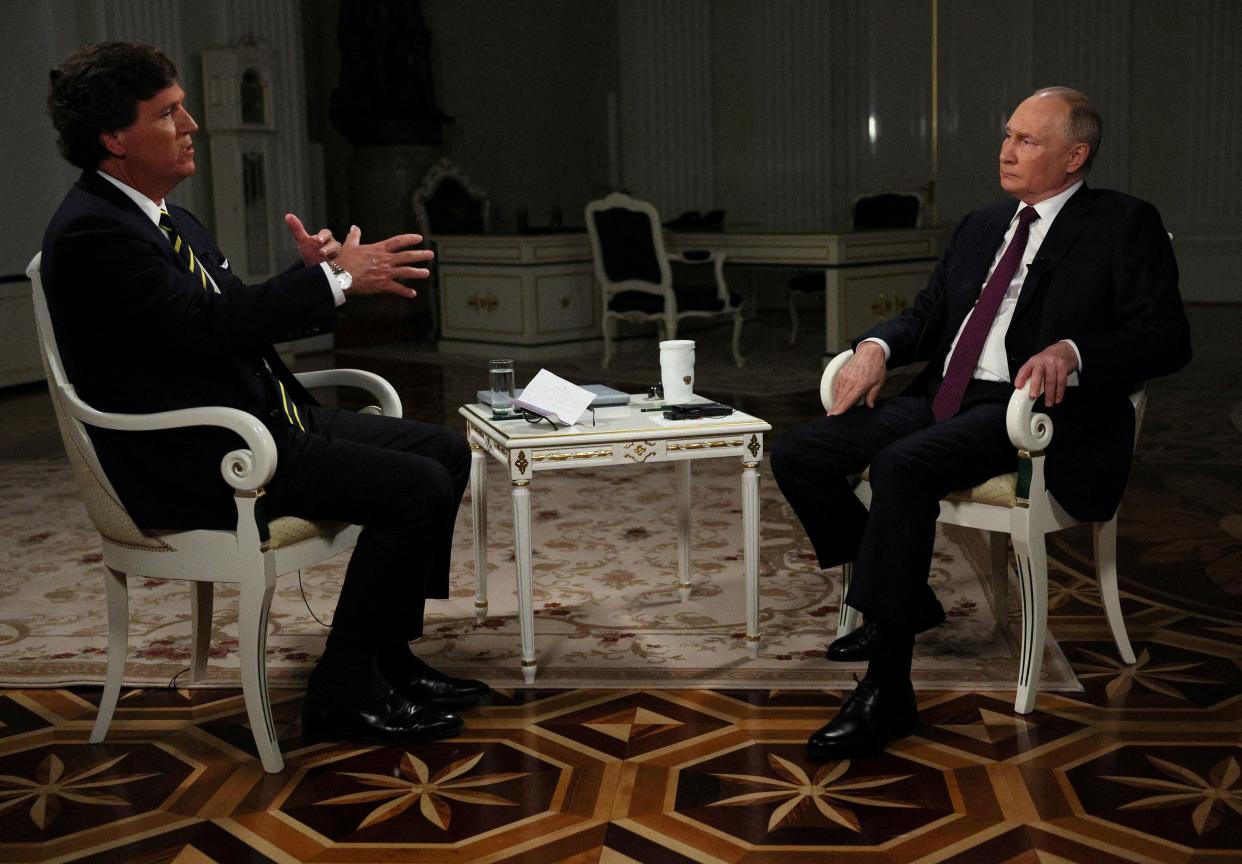Putin hints at swapping Evan Gershkovich for Russian assassin

- Oops!Something went wrong.Please try again later.
- Oops!Something went wrong.Please try again later.
Semafor Signals
Supported by
Insights from The Wall Street Journal and The Moscow Times
The News
Russian President Vladimir Putin said Russia is “ready to talk” with the U.S. about a prisoner swap for Wall Street Journal reporter Evan Gershkovich.
In what was described as a “softball interview” with former Fox News anchor Tucker Carlson, Putin said “an agreement can be reached,” and confirmed that talks have been ongoing about a deal. While Putin did not specify who Russia would potentially seek in exchange for Gershkovich, he indicated that it was an individual jailed in a U.S.-allied country., widely believed to be a reference to the Russian FSB agent Vadim Krasikov, who is currently serving a life sentence in Germany for the 2019 assassination of a former Chechen insurgent.
“We’re encouraged to see Russia’s desire for a deal that brings Evan home, and we hope this will lead to his rapid release and return to his family and our newsroom,” The Wall Street Journal said in a statement.
When Carlson asked if Putin would consider releasing Gershkovich unilaterally, Putin replied that “we have done so many gestures of goodwill out of decency that I think we have run out of them.”
Gershkovich has been in jail for over 300 days on spying charges that have been widely denounced by dozens of countries.
SIGNALS
Hostage-taking has become a US national emergency
The high number of U.S. citizens arrested by hostile countries on dubious charges as political leverage has forced the White House to call it a national emergency. While the Biden administration has negotiated the return of at least 45 U.S. citizens to date, around 30 Americans remain unjustly arrested around the world. Biden’s strategy to push for prisoner exchanges while promising tough sanctions on offenders, may be encouraging further hostage taking, several U.S. officials told The Wall Street Journal. Others have maintained that negotiated settlements are the only way to bring hostages back to the U.S. “There is always some sort of confession,” Washington Post journalist Jason Rezaian, who spent 544 days imprisoned in Iran, told NBC News.
Countries like Iran have also demanded “broader economic and diplomatic concessions” as part of prisoner swap deals, Dani Gilbert, who researches hostage crises at Northwestern University, told The Chicago Council on Global Affairs.
Putin is regarded in Moscow as ‘the master’ of prisoner exchanges
In 2019, Putin risked blowing up a prisoner exchange deal between Russia and Ukraine by demanding an additional high-profile prisoner — a key suspect in the 2014 downing of the Malaysia Airlines plane — at the last minute. Ukrainian President Volodymyr Zelenskyy begrudgingly agreed, having already publicized the politically-crucial swap, two Russian journalists wrote in the Moscow Times. “The way Putin played the game was seen by many in Moscow as proof that Vladimir Putin had become the master, indeed possessed truly unrivaled skills, in the trading of human beings,” they wrote.

